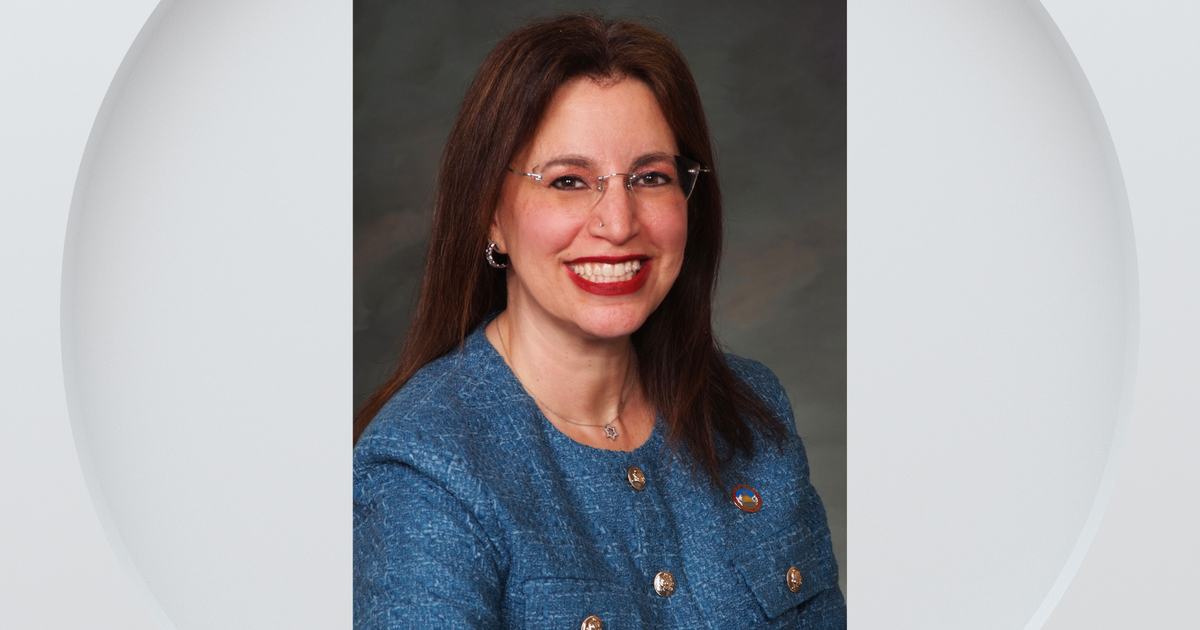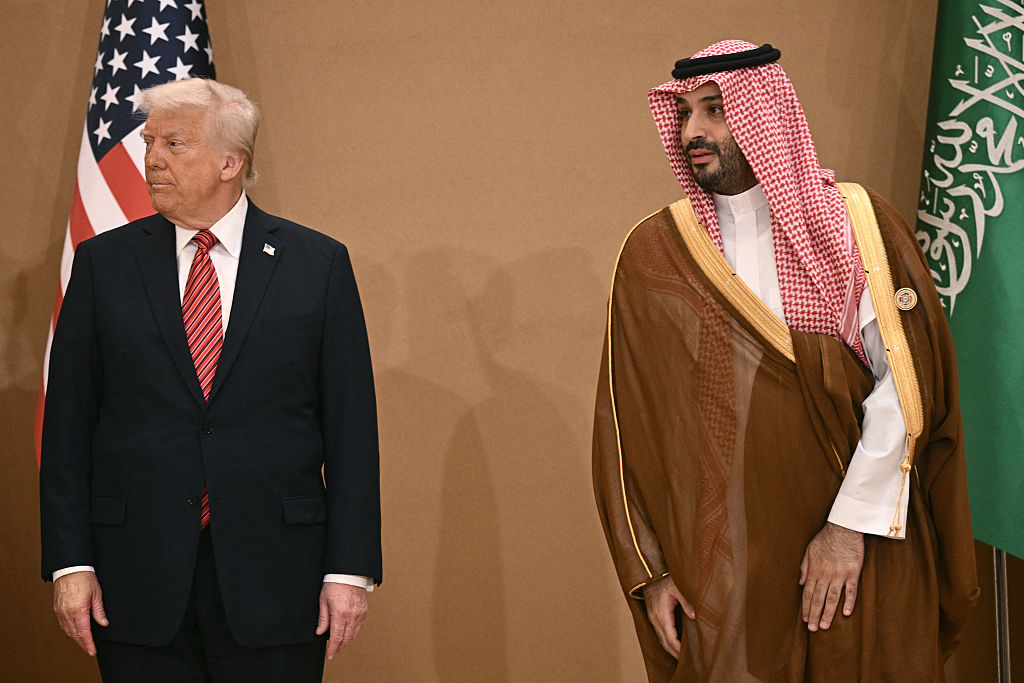Transcript: Sen. Rand Paul on "Face the Nation," Nov. 18, 2018
The following is a transcript of the interview with Republican Sen. Rand Paul of Kentucky that aired Sunday, Nov. 18, 2018, on "Face the Nation."
MARGARET BRENNAN: We turn now to the news that the CIA has determined that Saudi Crown Prince Mohammed Bin Salman personally ordered the killing of journalist Jamal Khashoggi. Kentucky Republican Senator Rand Paul joins us now from Bowling Green. Senator, the president says a final conclusion will be made this week by the U.S. government, but in a Fox interview he indicated that essentially murder can be forgiven if the kingdom provides economic benefit. Listen to this exchange.
*CLIP*
CHRIS WALLACE: What if the Crown Prince, speaking to you the president of the United States, directly lied to you about--
PRESIDENT DONALD TRUMP: Well that he told me that he had nothing to do with it. He told me that, I would say maybe five times at different points.
CHRIS WALLACE: But what if he's lying?
PRESIDENT TRUMP: As recently as a few days ago.
CHRIS WALLACE: Do you just live with it because you need him?
PRESIDENT TRUMP: Well will anybody really know, all right? Will anybody really know, but he did have certainly people that were reasonably close to him and close to him that were probably involved. You saw we put on very heavy sanctions massive sanctions on a large group of people from Saudi Arabia. But at the same time we do have an ally and I want to stick with an ally that in many ways has been very good.
*END CLIP*
MARGARET BRENNAN: What do you make of the president's remarks?
SENATOR RAND PAUL: Well you know the Crown Prince, his brother, made a phone call to Khashoggi, the dissident that was killed and dismembered, and that phone call was to tell Khashoggi, "Hey it's fine. You can go to the consulate no one will harm you." Well, you know, we have the Crown Prince's brother making that phone call. I think we have other intelligence that may link brother's phone calls back to the Crown Prince. I think the evidence is overwhelming that the Crown Prince was involved and so no I don't think we can sweep this under the rug. The thing about sanctions is that I think sanctions are pretending to do something without really doing anything. Most of these people are in prison other than the Crown Prince. But the Crown Prince runs the country and we deal with him. If we put sanctions on people who are in prison. Are we really doing anything to punish them they're already in prison. We need to punish who ordered this. Who's in charge and really the only thing they understand over there is strength. I think they will see sanctions as weakness on the part of the president and if the president wants to act strongly he should cut off the arms sale not only because of the killing but until they stop bombing civilian populations. Secretary Pompeo told Saudi Arabia three weeks ago stop bombing civilian populations. Since then Saudi Arabia has bombed cities 200 times, they're not listening--
MARGARET BRENNAN: --you're talking about in Yemen.
SEN. PAUL: --they're indiscriminately bombing civilians.
SEN. PAUL: Yes in Yemen.
MARGARET BRENNAN: You're talking about in Yemen. I should point out Saudi Arabia disputes the reporting that there is a- there was a phone call between Prince Khaled and Jamal Khashoggi. They say that's just not true. But given the CIA assessment overall that says there was a role, do you think this needs to trigger some other kind of change in policy? You're on the Senate Foreign Relations Committee, are you going to try to block the appointment of the appointed ambassador?
SEN PAUL: Realize the Saudis have told us a lot of things that were untrue. They told us it was a fistfight that went bad, they have told us he was alive, they had a body double there to try to trick people into believing he was still alive. So the Saudis have been duplicitous since the very beginning. Do we need to do more? Yes, but at the very least we need to quit selling arms to people who are lying to us--
MARGARET BRENNAN: --The President says that that's exactly why though, those arms sales are exactly why the relationship is important and he's not going to hurt the economic benefits.
SEN. PAUL: Here's my point. The arms sales don't make us safer. They make us less safe. When we sell arms to a foreign country, it should not ever be for jobs, it should be for our national security. The Saudis' involving us in their war in Yemen is a disaster. 17 million people live on the edge of starvation. If we get involved in another civil war in the Middle East, that's not good for our national security. That just drains our natural resources--
MARGARET BRENNAN: Can you do anything to stop it though?
SEN. PAUL: Yeah. Quit arming the Saudis. The Saudis are bombing to the tune of tens of thousands of bombs in Yemen--
MARGARET BRENNAN: But in Congress, is there anything you can do? Because the president says he's going to continue selling.
SEN. PAUL: Right. Yeah, I've introduced resolution after resolution to stop selling arms. We've done it twice and it's a privilege resolution meaning they can't prevent me from getting a vote. First time I got twenty something votes the second time with the help of a Democrat Senator Chris Murphy we got 47 votes. If we have another vote I think we could almost get to a veto proof majority, but guess what? They're not bringing any arms sales up right now--
MARGARET BRENNAN: Right.
SEN. PAUL: --because they know we might beat them.
MARGARET BRENNAN: What about the ambassador who's been nominated here, General John Abizaid? You going vote to confirm him?
SEN. PAUL: I- I want to meet with him and I don't think that that really- my first impulse is not- that's not the way to sort of punish Saudi Arabia, by blocking an ambassador. I'm a big believer in dialogue and even with this I wouldn't stop trading oil with Saudi Arabia, but I would stop selling them arms. That's the first thing I would do. That doesn't disrupt trade, doesn't disrupt diplomacy. It just sends them a very strong message, we're not going to keep fueling your- your war in Yemen, which is a total disaster. And everybody saying there's no military solution and yet nobody's willing to do anything that would actually force Saudi Arabia to stop the war. If we were not refuel- not refueling, if we were not providing spare parts for their American made planes--
MARGARET BRENNAN: Right.
SEN. PAUL: --the war would be over in a matter of months because you have to have a continuous supply of spare parts and people repair your planes and train your pilots. If we quit doing that, Saudi Arabia would quit bombing them within three or four months.
MARGARET BRENNAN: I want to get you on domestic policy. The president has put forward a- a- a proposal that has some bipartisan support on criminal justice reform. There's no guarantee it's going to be put to vote in the lame duck session and some of your fellow Republicans like Tom Cotton say this is just about letting felons out of jail. How do you respond?
SEN. PAUL: You know I've been- I've been working on criminal justice reform with Republicans and Democrats for six or seven years. I met with President Obama several times on this, bipartisan groups. We have a real chance to pass this now. With President Trump being in favor of- of this criminal justice reform, he came out publicly for it, really it only depends on one senator now. If Senator Mitch McConnell, from my home state, will allow a vote it gets 65 to 70 votes in the Senate. It'll be one of the most popular things to ever pass. Is it a jailbreak? No. It's saying people that have you know a nonviolent drug offense, that we don't keep them in jail for life. It's saying that 95 percent of people that get out of prison, when they get out of prison, do we want them to keep committing crimes or we should train them for jobs? Should we use programs to try to test whether or not we can teach people not to recommit crimes? And really do nonviolent people need to be in jail sometimes for life? We should--
MARGARET BRENNAN: So how--
SEN. PAUL: --reevaluate this.
MARGARET BRENNAN: So how do you force a vote? You're running out of time here.
SEN. PAUL: Well it- it's all up to one person. Senator McConnell has the ability to call any vote he wants to anytime. He has promised in the past that he would allow this vote if there was popularity for it. President Trump is behind it. In my state 86 percent of the people--
MARGARET BRENNAN: You're suggesting he's choosing not to?
SEN PAUL: --are behind this. The Fraternal Order of Police- Fraternal Order of Police are behind it. 2000 pastors, and I- I didn't get your follow up.
MARGARET BRENNAN: I said it-it-it seems like you're suggesting that he does not want to.
SEN. PAUL: There have been some articles, I haven't talked to him directly about it. The last time I talked to him about it, he said he was open to allowing a vote after the election.
MARGARET BRENNAN: Okay.
SEN. PAUL: Now with the President Trump- a-a-all in on this. I really hope we can get a vote but it's really up to Senator McConnell. But it's very very popular in Kentucky and very very popular with people who support President Trump so I hope he allows a vote.
MARGARET BRENNAN: We will watch for that. Thank you very much, Senator Paul.
SEN. PAUL: Thank you.



